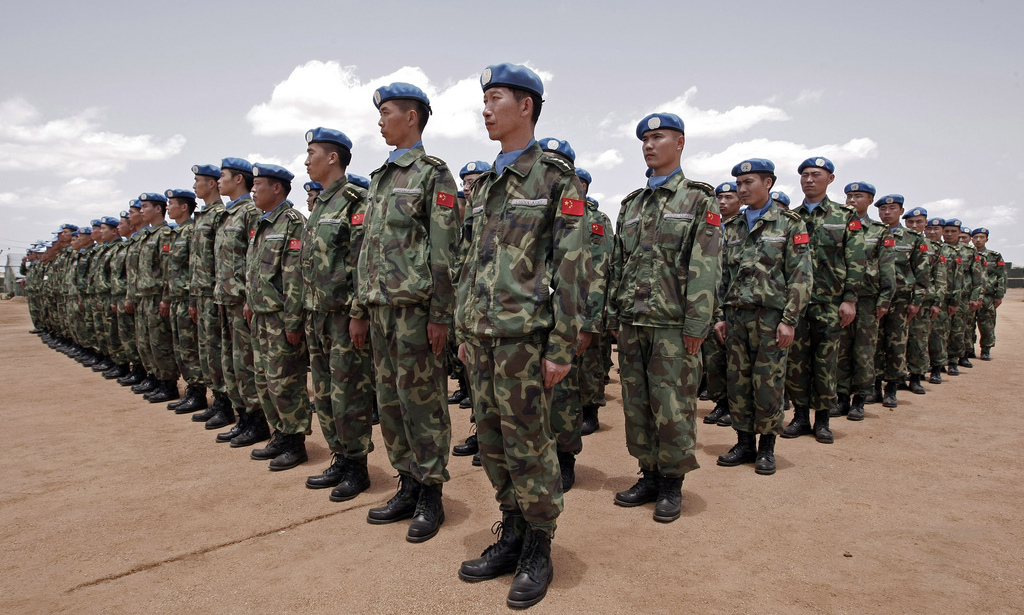
What follows is the text I read for a presentation I made for a course I have had during my exchange semester at Fudan University, in Shanghai. Each class consisted in several presentations given by the students (and discussions), which made me want to do something a bit different, to try to bring something else and to see how people would react.
As you may read, this text is essentially about war, or acts of war. There are a few things I want to specify, and to put them into a nutshell, I would say that this short speech is not an anti-war plea but it does insist on the idea that war is such a dreadful thing that it does require the whole spectrum of knowledge to durably triumph, for instance to clearly define the objectives and the enemy, to always look for knowing him rather than falling into the trap of contempt that would lead to mistakes… In this text, I mention a very classical Chinese author, especially his recommendations about before actually being on the battlefield but it doesn’t mean that I reject what is about the violent conflict in itself: both have to be to tackled, in order to prevent war to occur over and over.
–
Hello everyone,
I apologize because I discovered when working for this presentation where those very boring introductions in books were from. I did one too.
My question was “Can you find some pattern of China’s decisions to use force? What is it? Under what condition and for what purpose would China use force?”
And actually, thinking about the subject, going through the readings, I faced some real issues. Maybe these are the ones I have – issues. Concretely, I was blocked on the “use of force” expression. What does it mean to “use force”, what does it lead to in reality, on the field and behind it? Especially in the country that has been the one of the “Single Child Policy” for 36 years.
Everything I am saying here is ridiculous, right? Why am I having such a naive stance? Actually, I don’t think it is naive, I think it is rather primary, elementary, in the sense that it comes before all other question for me. I do believe that, sometimes, we have a tendency to talk about things from a very remote point of view. Don’t you think that the backslash of theory is a bit of a loss of humaneness? Like the mind moving away from the rest of you?
Well, of course theory is absolutely necessary not to behave simply following your instincts, especially when talking about that matter – war. But I am not good at this kind of international relations theory stuff, definitely not, even though I love IR and I sometimes go into theory for some subjects. But I thought that these presentations are about bringing something personal, aren’t they? To be honest, I think that what I will remember for years from the presentations we have had for now, is when June said something like “I am from South Korea and I actually feel sad I have to add a descriptive to the noun “Korea”. It was simple but deep, it moved me.
And, maybe I am wrong but I tend to think that there is an actual need for this kind of expression. We probably shouldn’t be feelings driven but I believe they are to be taken into account. One may say “Yeah Pierre, that’s cool but it is neither the good place nor the good moment to do that”. Actually, this is what I have been telling to myself for the past weeks, irremediably alternating between “Concentrate on the readings” and “There is so much I feel I have to think about before I can go into these issues”…
It looks like a fight between reason and passion. However, one of the things this stay in China brought me is that I try, even more than before, to get out of dualistic oppositions among which stands the famous “reason/passion”. Let’s go back to our previous question: what are these words doing here? Especially in a classroom of a prestigious university such as Fudan. You know, I have been hesitating a lot about this presentation because I know it is unusual. But in the end, I kept on my way – “along the byway” to quote Frank – following a counterintuitive approach stating that this kind of words may actually be even more important here than anywhere else. If I believe there is some kind of underlying need for personal presentations, it is precisely because we are in a prestigious university, because this room is full of variously talented people from all over the world that may access to some of the highest positions this world has, whether it is in public offices or in privates companies. So, it first has to take place in such places as Fudan, it cannot be done or expressed through some kind of online WeChat “moments” publication. The contrast is necessary, and is an absolute harmless one; I am not willing for any revolution.
But what are these based on – the revolutions? I would say that they deeply rely on the critic of the elite. This room is de facto part of the elite given the tiny quantity of people being lucky enough to come here. And what is the very recurrent critic about the elite? Something like: “They are hydroponic people, since birth or simply by their studies that made them progressively forget the bottom of the ladder”. Well, this is probably too much one-sided and we absolutely need elite as we need some verticality to organize our societies but these are probably not sufficient reasons to simply put away the previous assertion especially because I think it is a paramount importance to defuse these simplifying populist bombs. Lately, it almost blew up in our face in France. What to do, then? I assume that we have to modestly take action to prevent ourselves from taking the bad side of higher education, and thus maybe, to show that we are good willing people, not fitting the caricatures. I truly apologize if you think my reasoning by induction is wrong because it starts from me and that I am a despicable egocentric person. My point is that history has proven that, despite a truly good will, you can end up doing things that harm what used to be your good principles, making the situation only worst. And I am saying that in a very general way, I am not thinking first about high-scale crimes, but rather about the small things we could do in a better way every day, but we don’t because, well, we think that it is how things are. So, it’s simply about the social contract. And what is the “use of force” but an attempt to enforce the social contract through violence? We will later see that this kind of event on the domestic scene has strong repercussions on international politics. Anyway, you probably understood that my whole point here is about trying to prevent the use of force.
So, here I am, trying to act in this direction I have been willing to describe. Is it good; is it bad, am I drowning? Well, you don’t know how badly or well you can swim until you have jumped into the pool. You may wonder again: “what is he doing”? I am taking the role of the jester, the fool – his political role, which consists in saying what is probably to be said even though there is some risk to say it.
By doing so, I put the ideas I just mentioned into acts. If I am doing it that way it is notably because I had the luck to attend a conference Pr. Christian Monjou has been giving for the French Navy. To make it simple, he is a specialist in British literature, professor at Oxford and the French Ecole Normale Supérieure. His main topic is leadership – this is also why he makes a nice business with conferences, even though you may have them for free on YouTube. Thus, when talking about leadership, one of the things he explains is that a good leader needs a jester, a fool. By the way, I found some very interesting stories about jesters in China (like You Meng’s); it seems that they correspond to a long tradition here. I would even be tempted to say that; maybe, Chairman Mao lacked a jester to restrain some of his policies.
As I mentioned earlier, in this class are probably people that will have high responsibility within a few years. I am currently playing the role of the jester to incite you to have your own later, especially if you are involved in using force decisions, and because I think my presentation will be better that way, because more effective. I mean that, if it is done in front of everyone, isn’t it because we should try to make a bit special? What is the point of simply summarizing the readings we all have and we may go back to later when thinking about the subject if we did not already read them all? I cannot prevent myself from thinking that most of what I have done during these years of university was only serving grading purposes. They are of course needed and help training but I feel that it is sad that we produce work that mostly eventually goes into some kind of void.
If I am in favor of bringing personal elements when possible and sharing them, it is also because emotions have the advantage to be true in any case. An emotion may be grounded on some false elements and misinterpretations but it remains true in itself, it is. Consequently, mentioning feelings and emotions also has the advantage of saying accurate things; there is no mistake to be done when we simply talk about them.
Well, that is some detour, some digression, but I have always been thinking that, when driving a car, it is more interesting to watch around by taking the small roads rather than the highway.
So, what do these readings teach us? Basically, what I see first is a huge reminder to people interested in International Relations: use different theories, vary the glasses, there is no such thing as one holistic and sufficient approach. We are at the only moment I would like to show you one picture, the one of John Lennon wearing five glasses at the same time. Maybe he was some kind of hidden IR scholar.
In any case for our “use of force” concern, it is about regime (in)security but under various forms :
- 1.Major combat with the United States in Korea, 1950–53;
- 2. Offshore islands operations against Taiwan, 1954–55 and 1958;
- 3. Deterrence deployment opposite Taiwan, 1962;
- 4. Limited combat with India, 1962;
- 5. Support for Vietnam against U.S. intervention, 1965–68;
- 6. Border clashes with the Soviet Union, 1969;
- 7. Limited combat with Vietnam, 1979;
- 8. Missile firings and exercises in the vicinity of Taiwan, 1995–96.
China’s primary motivations included preemption of perceived attack (Korea), deterrence (the US in Vietnam and the Soviet Union along the border), coercion (India, Vietnam), and coercive diplomacy (Taiwan).
About the theoretical view we may have of those events, there is first the theory that the use of force is the result of a loss in bargaining power about territorial disputes. Thus, military action is a way to prevent the occurrence of worse battling conditions. In this theory, there are two variables to assess the outcome: the size of the disputed zone and the country’s projecting capacities.
Furthermore, there is on one side the diversionary war theory that asserts that leaders facing domestic issues provoke conflicts with other states just to improve their position at home. Great Leap Froward and Taiwan, Tibet and India, Cultural Revolution and Vietnam…
However, on the other side, we may also see that internal conflicts create conditions for cooperation, producing a “diversionary peace” instead of war, assuming that leaders are willing to cooperate with other states in exchange for assistance in countering their domestic sources of insecurity. For instance, we can mention the borders with Tajikistan, Turkmenistan and Kyrgyzstan in Xinjiang, where the Chinese government has been looking for police cooperation. It was the same phenomenon after the Tiananmen events that played a role in the creation of dialogue with China’s socialist neighbors, and contributed in reaching border issue agreements with India.
If we broaden the picture, we can see, since the early 90’s, the after-Tiananmen and the first Gulf War, that there is a phenomenon of “norm diffusion” or “social learning” process, meaning that China is willing to play an increasingly important role in international politics. It leads to a decrease in China’s use force, compared to the Cold War, and an increase in the participation on the multilateral scale. Thus, we do not have a proper pattern of intervention but a patchwork that follows the globalization trend for a state that has been tremendously developing.
But then, in the end, what would be the point of having an absolutely determined pattern to use force? What I mean is that, if one takes this kind of decision following very detailed guidelines, isn’t he losing the actual interest of the “use of force” which is, before all, to create some non-totally predictable deterring threat?
Coming to this idea, I have been thinking about Sun Zi I tried to do a presentation about a few weeks ago. It was from a very philosophical point of view, so I am not aiming here to recycle, but rather to bring some extra content. After all, Bingfa is also about international relations and “use of force”.
Despite its English name that may lead to misinterpretations, the Art of War is first about how not to have to wage war, how not to have to “use force”. Of course, I am not saying that we should cut all military expenditures and withdraw all the forces including those, for instance, fighting the Islamic State. I do not pretend to be a reference about Sun Zi but I think that one of the core messages he gives is that, if you eventually have to “use force” it means that you have been failing earlier. “So – numerous battles, numerous victories – this is not the highest form of skill; not to fight and yet to bend the opposing force to your will, this is the highest form of skill”. Let’s quote a bit more: “… the best military policy is to attack strategies, the next to attack alliances, the next to attack soldiers, and the worst to assault walled cities”. Finally, here is a line of Sun Bin, an heir or simply successor or Sun Zi: “The distaste for war is the most basic principle of the True King”.
Hence, from that point of view, China seems to have come to a more pragmatic approach, at least less driven by ideology as it used to be the case when promoting continuous revolution. However, one shouldn’t put aside the context, the security situation in particular, that has nothing to do nowadays compared to what it was after the establishment of the People’s Republic, or in the years around the Korean War, the Vietnam War or the Tiananmen events.
I wonder what has been Mao’s relation to the Art of War. He apparently says what follows in his book about guerilla warfare: “We must not belittle the saying in the book of Sun Zi, the great military expert of ancient China, ‘Know your enemy and know yourself and you can fight a thousand battles without disaster’ ”. Well, maybe Mao didn’t read the whole book or simply took what was interesting him before he was in power; I mean the very part being about the violent conflict he seems to focus on here. I would qualify the previous sentence by saying that, of course, he did not only wage battle.
Today, China’s attitude towards the “use of force” seems relatively peaceful, in comparison to the past, and it is tempting to wonder if, maybe, the return of Confucian ideas has been going along with a most vast corpus of ancient texts. Even if the objective was first to base the political power on some strong historical values, like Hu Jintao used to promote “harmony”, a key idea in traditional Chinese culture, we may wonder if the tool is actually not only affecting the product, but also the craftsmen who is holding it.
Pierre Dubilly

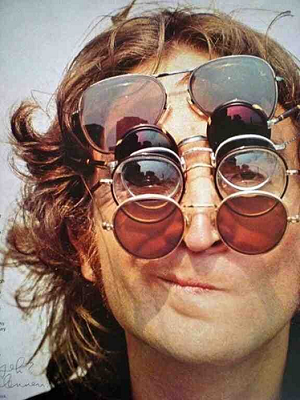
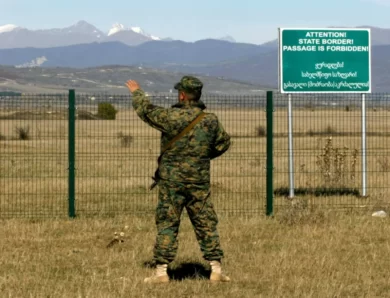

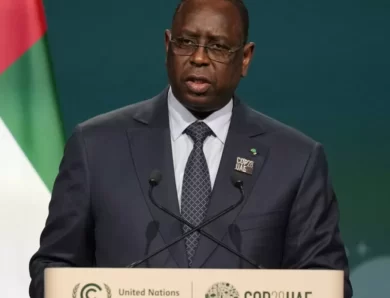
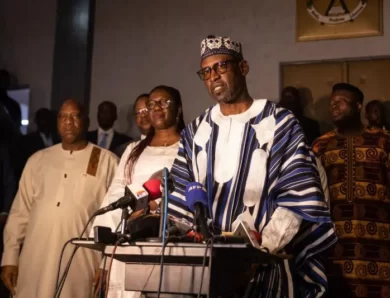
No Comment